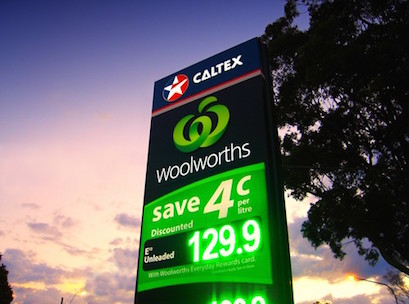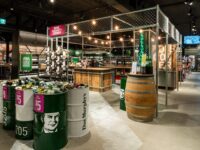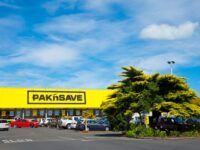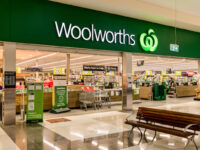 A $1.8 billion deal between Woolworths and BP that would have seen the supermarket giant offload its fuel arm has been torn up after the competition watchdog refused to provide its blessing.
A $1.8 billion deal between Woolworths and BP that would have seen the supermarket giant offload its fuel arm has been torn up after the competition watchdog refused to provide its blessing.
The businesses had been considering their options for months after the ACCC knocked back their proposal last December, but on Wednesday Woolies said BP had notified it that plans to purchase the business would be abandoned.
Woolworths will now be free to pursue other options for the sale of its petrol business that may be more amenable to the ACCC. Group chief Brad Banducci said last month that Woolies had a “myriad of options” and that a “range of parties” had expressed interest in the business. But analysts have expressed concern that the value of Woolworths’ fuel business may have eroded further since its 2016 agreement with BP, tempering potential returns.
Both BP and Woolworths had been trying to change their 2016 deal to get a tick of approval from the ACCC, but as a sunset clause in the deal approached it appears it was realised that this was not feasible. The ACCC has maintained that the sale of Woolworths’ fuel assets to BP would “substantially lessen” competition in the market.
“Woolworths is a vigorous and effective competitor which has an important influence on fuel prices and price cycles in many markets throughout the country,” said ACCC chairman Rod Sims said last December.
But Banducci offered a different opinion last month, saying that Woolies had been losing market share to independent players.
“All majors in Australia are actually losing some market share to the smaller independents, often the value players, a fact that seems to have escaped our esteemed colleagues in the ACCC,” he told analysts in May.
The 533 petrol canopies that were tied up in the deal will likely weigh on Woolworths’ fourth quarter performance. Comparable petrol volumes declined by 6.9 per cent in the third quarter, which sent sales down by 0.3 per cent to $1.2 billion. Comparable sales, adjusted for Easter, declined by 0.8 per cent.















